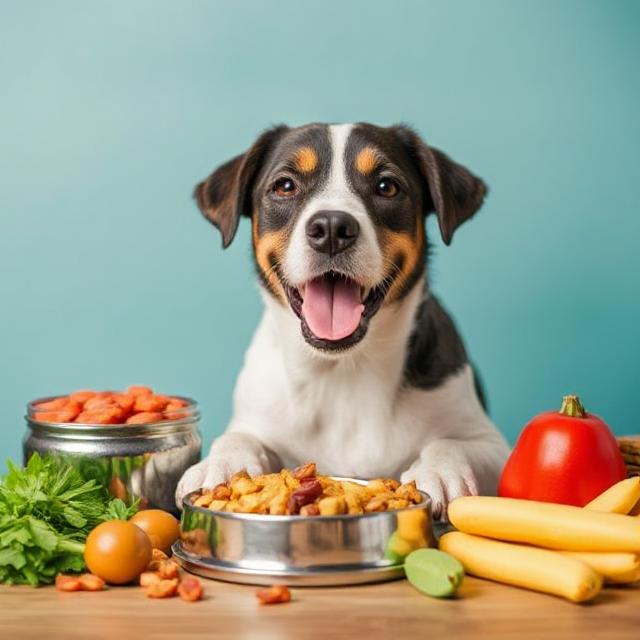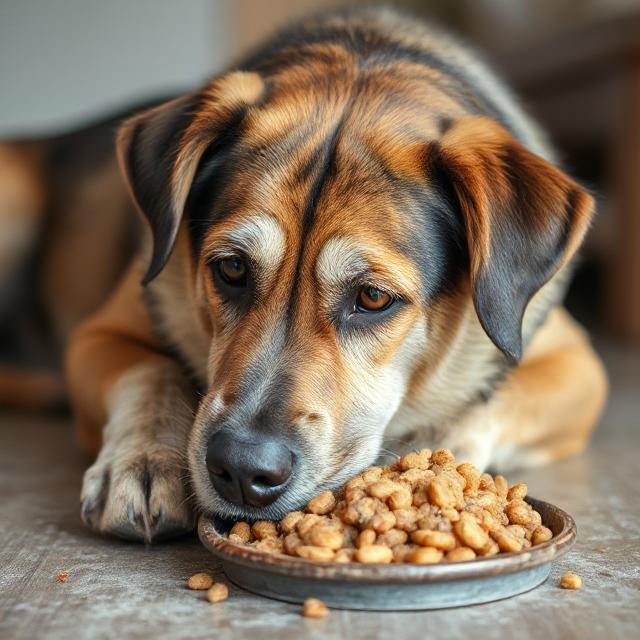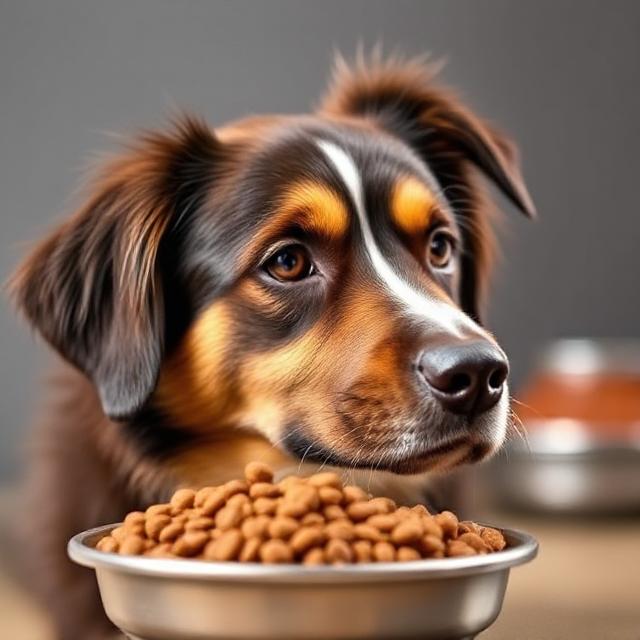The Ultimate Guide to Healthy Dog Food: What Your Pup Should Really Eat
As a loving dog owner, you want nothing more than to give your furry companion the best life possible. And it all starts with what you put in their food bowl. While commercial dog food offers convenience, it often lacks the fresh, wholesome nutrients your dog needs to thrive.
In this guide, we’ll explore the best healthy food options for dogs — not only to help you make smarter feeding decisions but also to enhance your pet’s longevity, energy, and overall well-being.
Why Healthy Food Matters for Dogs

Just like humans, dogs need a balanced diet to stay active, fight illness, and maintain strong bones and muscles. A nutrient-rich diet supports:
- Stronger immune function
- Shinier coat and healthy skin
- Improved digestion
- Better energy levels
- Longer lifespan
The goal isn’t just to fill your dog’s stomach — it’s to nourish their body. And the good news? Many natural, whole foods found in your kitchen are not only safe but incredibly beneficial for dogs.
Safe and Nutritious Foods for Dogs
Let’s dive into some of the healthiest options to include in your dog’s diet — as snacks, toppers, or occasional treats.
1. Apples (Without Seeds)
Apples are rich in vitamins A and C and a great source of fiber, which supports digestion. They also act as a natural teeth cleaner due to their crunchy texture. Just be sure to remove the seeds and core, as they contain small amounts of cyanide which can be toxic over time.
2. Carrots
Crunchy, low in calories, and full of beta-carotene, carrots are fantastic for your dog’s vision and immune system. They’re also a perfect chewing snack that helps clean teeth and promote healthy gums.
3. Blueberries
Tiny but powerful, blueberries are packed with antioxidants that help fight cell damage. They are also low in calories and high in fiber and vitamin C. These little berries make an excellent training reward.
4. Pumpkin (Plain and Cooked)
Pumpkin is often recommended by veterinarians to help dogs with digestive issues. It’s loaded with fiber and beta-carotene, which helps regulate bowel movements. Choose plain canned or cooked pumpkin—no added sugars or spices.
5. Cooked Sweet Potatoes
Sweet potatoes are a superfood for dogs. They’re gentle on the digestive system and filled with vitamin A, potassium, and dietary fiber. Serve them cooked and mashed — never raw.
6. Green Beans
Whether raw, cooked, or steamed, green beans are low in calories and high in fiber, iron, and vitamins A, C, and K. A great snack option, especially for dogs who need to shed a few pounds.
7. Bananas
Bananas are a potassium-rich treat loaded with vitamin B6 and fiber. They’re great for boosting energy and aiding digestion. Due to their sugar content, serve in moderation.
8. Watermelon (Seedless)
Hydrating and refreshing, watermelon is over 90% water and rich in vitamins A, B6, and C. Remove the seeds and rind before serving, as they can be choking hazards.
9. Oatmeal
A perfect source of soluble fiber, especially for older dogs or those with digestive sensitivities. Serve it cooked and plain — skip the sugar and flavorings.
10. Plain Cooked Chicken or Turkey
Lean meats like boiled or baked chicken (without skin or bones) are high in protein and easily digestible. Great for upset stomachs or as a topper to regular kibble.
11. Fish (Like Salmon or Sardines)
Rich in omega-3 fatty acids, fish helps maintain a shiny coat and supports heart health. Serve fully cooked and boneless — raw fish may contain parasites harmful to dogs.
12. Eggs (Cooked Only)
Eggs are a complete source of protein and loaded with amino acids. They also support muscle repair and a healthy coat. Always serve them fully cooked to avoid the risk of salmonella.
13. Cucumbers
For overweight dogs, cucumbers are a low-calorie, crunchy snack packed with hydration, potassium, and magnesium. Slice thin to avoid choking.
14. Zucchini
Another excellent low-calorie veggie. Zucchini is rich in vitamins and antioxidants and can be served raw or steamed.
15. Plain Greek Yogurt
A great source of calcium and probiotics, plain Greek yogurt supports gut health and can be a cool treat on hot days. Be sure it’s unsweetened and xylitol-free.
Foods to Avoid
Not all “human foods” are dog-safe. Always steer clear of:
- Grapes & raisins – Toxic and can lead to kidney failure
- Chocolate – Contains theobromine, which is poisonous to dogs
- Onions & garlic – Can damage red blood cells
- Xylitol – A common sweetener found in peanut butter, gum, and baked goods that’s extremely toxic
- Avocados – Contains persin, which is toxic in large amounts
- Macadamia nuts – Can cause weakness and tremors
Tips for Transitioning to a Healthier Diet
- Introduce new foods gradually to avoid upsetting your dog’s stomach.
- Monitor for allergies like itching, diarrhea, or vomiting.
- Consult your vet before switching to a homemade or partially fresh food diet, especially for dogs with medical conditions.
Conclusion: Feed Them with Love and Knowledge
Feeding your dog healthy food is more than a trend — it’s a commitment to their long-term wellness. By incorporating safe, whole foods into their diet, you provide your pet with the nutrients they need to feel energetic, playful, and loved.
A healthy dog is a happy dog. Start with small changes, stay informed, and watch your furry friend thrive.





Post Comment